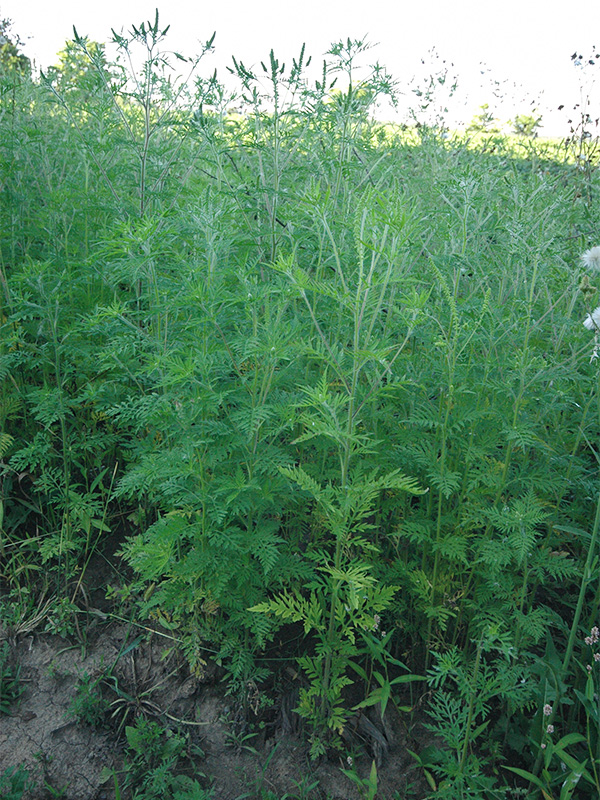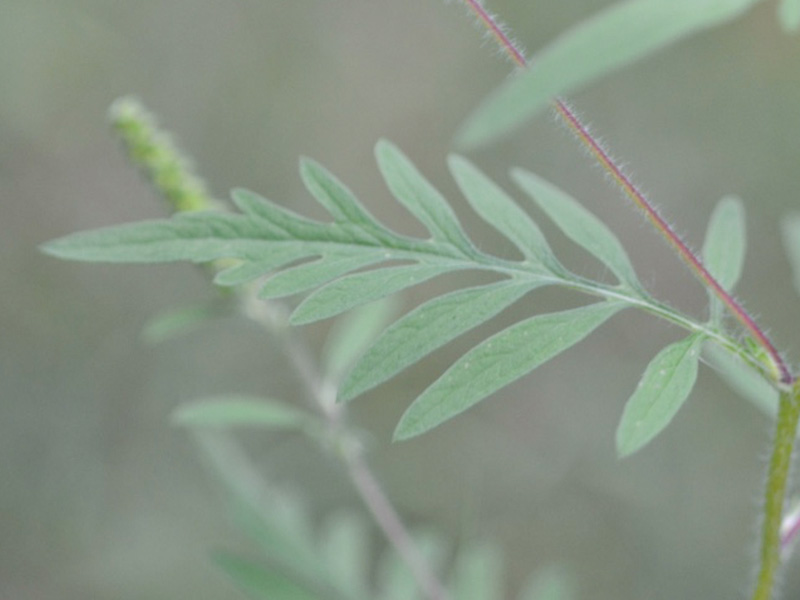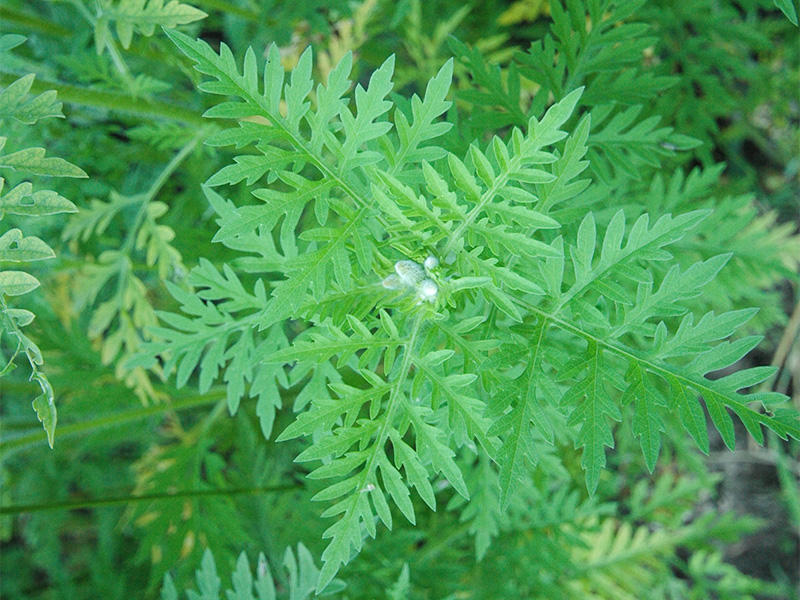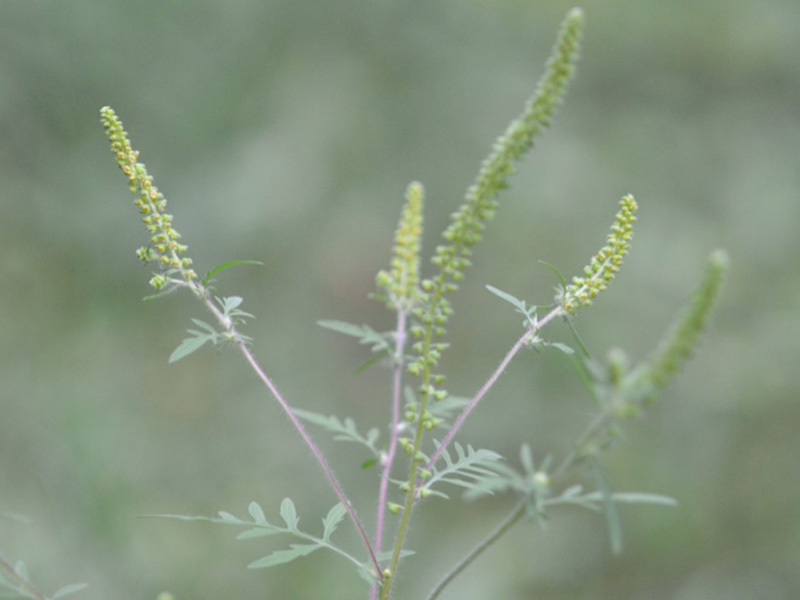
Weeds > Ambrosia > Ambrosia artemisiifolia > Ambrosia artemisiifolia
Ambrosia artemisiifolia
Common Ragweed
Origin: Native to North America.
| Family |
| Asteraceae |
| Genus |
| Ambrosia |
| Species |
| artemisiifolia |
| Category |
| Weeds |
| RHS Hardiness Zone |
| H7 |
| Height |
| 3 m |
Photographs
Description and Growing Information
Flowering Period
| Cultivation |
| Full sun. Will thrive in clay, gravel or sand but prefers sterile soil. Drought resistant. |
| Shape |
| Widespread. |
| Growth |
| Fast |
| Pests |
| Ragweed, caterpillars and moths. |
| Habitat |
| Weedy meadows and cropland. |
| Flower/Leaf Bud Description |
| Seeds are produced which can remain viable for 5 years or more. |
| Leaf Description |
| Hairy stems. The leaves are 15 cm long, 10 cm wide and opposite or alternate along the stem. Deeply pinnatifid, broadly lanceolate and much wider at the base than the tip. Small emergent leaves often have hairs on their underside. |
| Flower Description |
| Small flowers that matures into achenes. Each flower is about 3 mm long. Male flowers produce pollen. Many of the upper stems terminate in one or more cylindrical spikes of flowers that are half as long as the leaves. |
| Colour Description |
| The stem is a green to light pinkish-red colour. The small flowers are initially green but turn a yellowish-green or brown as it matures. |
| Texture Description |
| Root system is fibrous. |
| Propagation |
| Seed. |
| Ethnobotanical Uses (Disclaimer) |
| Native Americans used this as a herbal medicine, both externally and internally. Major cause of hay fever, an allergic reaction to its wind-borne pollen during, the late summer and early autumn. Today the pollen is harvested commercially for use in pharmaceuticals designed to treat hay fever. |



